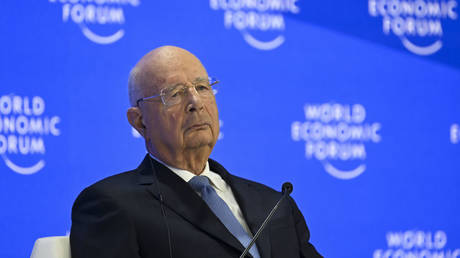Davos Leader Resigns
Klaus Schwab has stepped down as chairman of the World Economic Forum (WEF), concluding an influential tenure of more than five decades since founding the organization in 1971. The WEF, recognized for its annual meeting of business and political...

The WEF, recognized for its annual meeting of business and political leaders in the Swiss resort town of Davos, and Schwab himself have become emblematic of globalization.
Schwab, who celebrated his 87th birthday earlier this year, announced his resignation on Monday following an extraordinary board meeting held the previous day.
“Following my recent announcement, and as I enter my 88th year, I have decided to step down from the position of Chair and as a member of the Board of Trustees, with immediate effect,” Schwab informed the board, as stated in a WEF news release.
Originally from Germany, Schwab, an engineer and economist, established the WEF to foster public-private partnerships and global collaboration. Throughout his leadership, he became recognized as a vigorous proponent of interconnectedness and interdependence, advocating for international cooperation to address complex challenges like climate change, inequality, and technological disruption.
Under his guidance, the Davos meeting evolved into one of the most prominent global forums. Over time, the Swiss village became a key part of the international agenda in January, as political leaders, CEOs, and celebrities convened to discuss the year's upcoming priorities.
Despite growing the organization's influence, Schwab's leadership also faced criticism. The WEF has been labeled elitist and accused of not being attuned to wider public concerns.
Schwab anticipated a backlash against globalization well in advance of significant political shifts such as Donald Trump’s election in 2016 and the UK's decision to exit the EU, both of which are often viewed as indicators of rising dissatisfaction with the global economic order.
In a co-authored opinion piece for the International Herald Tribune in 1996, Schwab cautioned, “A mounting backlash against effects, especially in the industrial democracies, is threatening a very disruptive impact on economic activity and social stability in many countries.” He also noted, “The mood in these democracies is one of helplessness and anxiety, which helps explain the rise of a new brand of populist politicians.”
Following Schwab’s departure, Peter Brabeck-Letmathe, the former CEO of Nestlé and current vice chairman of the WEF, has been appointed interim chair while the organization initiates the selection process for a permanent successor.
Aarav Patel for TROIB News
Find more stories on Business, Economy and Finance in TROIB business












